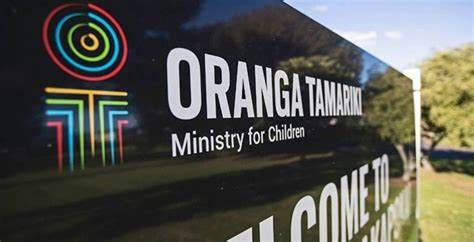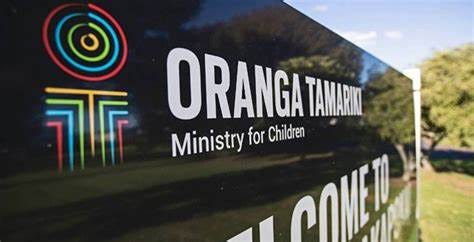Government Promises rollback of OT Oversight Bill / A.J. Hendry
There's a lesson in this, a reminder that no matter who holds the levers of power in Parliament, the real power belongs to the people! And we are far more powerful than we realize...
When the last Labour Government first introduced the Oranga Tamariki Oversight Bill in its last term, it is hard to imagine they foresaw that the strongest resistance against the bill would not come from their natural political adversaries within the opposition at the time, but from the ranks of those who would normally be considered among the ranks of Labour’s base.
And yet, that’s exactly what happened.
Led by rangatahi (including the champions within VOYCE – Whakarongo Mai), the Care Experienced community, professionals, advocates, academics and organizations with long histories of caring for children and young people, spoke out loudly and strongly against the Bill. Perhaps even more surprisingly still was that every political party within Parliament at the time lined up behind them, including National and Act.
The key concerns with the Bill at the time was that it would weaken the monitoring of Oranga Tamariki, stripping the Children’s Commission of its monitoring function (amongst other things), and moving that function within a Governmental Agency (namely ERO the Education Review Office).
Care experienced young people specifically voiced concerns that by placing the monitor within a Government Agency there would always be concerns within the community, from children, young people, and their families, that the monitor was not safe, nor independent enough to do its job.
Some care experienced whānau at the time described the decision as a move to give the abuser the power to monitor itself. No matter how dedicated or passionate the people within the monitor would be the community expressed loudly and clearly that they did not have confidence in the reforms that were being driven through. They asked, demanded, pleaded, for the Government to listen. To halt the reforms planned, to engage further with the sector and community and to wait until the report into Abuse into State Care was finalized and its recommendations released.
The Government at the time refused to listen and instead pushed on with the reforms leaving many traditional Labour allies and voters feeling betrayed and aghast at Labour’s willingness to blow so much of their political capital on reforms so clear opposed by the community.
And yet, during the course of the campaign against the bill, advocates managed to secure commitments from each party within Parliament – bar Labour – to repeal the Government’s reforms and to engage further with the sector and community to ensure the development of a monitoring system the Government could have confidence in.
Last week, with little fanfare the Coalition Government announced that they intended to keep that promise.
And there is a lot to be happy about with the Government’s announcement, including the commitment to strengthening the monitoring system by removing it from within the Education Review Office and instead ensuring its independence by making it an independent crown agency. This is good and responds to one of the sectors and care experienced communities' key concerns.
Another key concern from the community was that the previous Government moved forward with their reforms without respecting mahi being undertaken to gather the voices and experiences of our lived experience whānau and draw from their insights in shaping the reform we need. The Coalition Government has listened to these concerns and announced their intention to wait to hear back from the final report before proceeding further.
The Coalition Government has also announced that they intend to remove the board model from the Children’s Commission, a model introduced by the OT Oversight Bil which saw the introduction of several Commissioners with different focus area’s. Removing the board model may not be necessary, as the key concern we heard from our care experienced community was that the model may dilute the strong, independent, and visible voice we have come to recognize within the Children Commissioner. The last Government heard that and addressed it by ensuring there was a chief commissioner.
If the current Government strengthens the independence as they have discussed, then many of the key concerns with the original Bill will be largely addressed. There is still a preference to see the Monitor function returned to the Children’s Commission, but it’s an improvement, and the increased independence will make many of the Bill’s loudest critics more comfortable.
The question will be – in an environment of cuts and a context of austerity politics - whether the reformed Crown Agency will have the resources they require to monitor the system adequately. That has always been the key issue and one of the key concerns previously was that the Children Commission was not being giving the resources they require to adequately monitor the system.
We cannot afford to cut costs when it comes to keeping our tamariki safe. If the monitor is going to be successful in doing its job monitoring the system and ensuring our tamariki are safe and that their voices and experiences are not just being heard, but are also being listened to, then it will need the money behind it to make that happen.
There are some lessons here for those advocating for our children and young people. Despite the Labour Government’s insistence on ramming through the Bill, the campaign that mobilized against the Oversight Bill focused on building a coalition of united voices to educate and inform, not just politicians, but the general public as well.
The success of this was that even though Labour had the numbers to push through the Bill, the opposition to the Bill was clearly able to demonstrate that these reforms had been made against will of the community and without the support of those who held expertise and the largest stake in the reforms promised.
And it was this advocacy, mobilized through a collective of diverse and powerful voices, which laid the foundation for rolling back the aspects of the Bill which most concerned the community.
In today’s context, where again our current Government has laid out plans to push forward with reforms impacting our children (this time with a focus on the justice sector) that go against the advice of evidence and the experts, we should remember that no matter who holds the levers of power within Parliament, the real power is the people.
Governments come and Government’s go, but the community remains. And collectively, we have far more power than we have even began to realize.
#LoveIsTheWay
A.J. Hendry is a Laidlaw College graduate, and a Youth Development Worker and rangatahi advocate, working in the Youth Housing and Homelessness space. He leads Kick Back, a service supporting rangatahi experiencing homelessness and is also an advocate working collectively to end youth homelessness in Aotearoa. He is also the curator and creator of When Lambs Are Silent.






Thank you for the reminder.